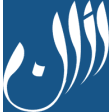Apps for Educational Software
Top 3 Educational Software Apps for
More Educational Software Apps for

Athan (Azan) Basic
FreeSimple, free prayer time utility
WindowsMendeley Desktop
FreeMendeley Desktop - For academic researchers
Windows
Aasaan - Hindi Typing Tutor
FreeLearn touch typing in Hindi and English.
Windows
G*Power
FreeFree tool for statistical power analysis
WindowsSonma Typing-Expert
FreeAn easy-to-use writing helper in English and Hindi
Windows
Global Mapper (64-bit)
Trial versionA comprehensive GIS tool for data visualization
Windows
eKalappai
FreeHandle keyboard for typing non-English languages.
Windows
Aasaan - Tamil Typing Tutor
FreeLearn touch typing in a simple way using Tamil and English letters.
WindowsGoogle Classroom
FreeSeamless learning management for modern classrooms
Windows
Logic Friday
FreeFree binary logic design made simple
Windows
Microsoft Translator
FreeYour multilingual companion to bridge the language gap
Windows
Tamil Bible
FreeRead the Bible in Tamil.
WindowsCxxdroid - C++ compiler IDE for mobile development
FreeCxxdroid is the most easy to use educational C and C++ IDE for Android.
Android
Boating Asia&Africa HD
PaidWorlds Most Popular Marine & Lakes App! A favorite among cruisers, sailors, fishermen and divers. Find the same detailed charts as on the best GPS...
iOSTypingMaster
FreeComplete touch typing course
WindowsLogger Pro
DemoEmpowering classroom data analysis
WindowsChat GPT
FreeThe app that started a new era
AndroidSosoMod app tricks
FreeAndroid
QGIS (64-bit)
FreeGeospatial data management
WindowsThe Game Changer - FREE
FreeBuild The GameChanger Honda Click/Vario for you in stunning 360 degree 3D.
Android
Madura English-Sinhala Dictionary
FreeA trusted tool for bilingual translation
WindowsTyper Shark Deluxe
DemoA fun and interactive game to improve typing skills
WindowsDemon Slayer: Kimetsu no Yaiba
FreeDemon Slayer: Kimetsu no Yaiba - For the real fans
Android
Graphmatica
Trial versionProvide a powerful equation plotter with numerical and calculus features.
Windows